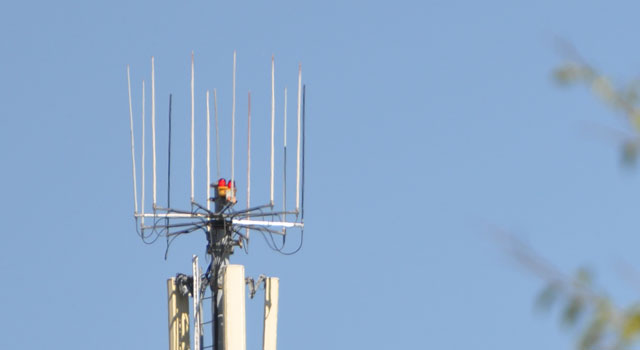
Wireless Business Solutions (WBS), the company that owns iBurst and Broadlink, owes the Independent Communications Authority of South Africa (Icasa) R57,9m in spectrum licence fees, the telecommunications regulator has claimed in court documents.
According to the papers, filed by Icasa at the high court in Johannesburg, WBS has also contravened sections of the Electronic Communications Act by its “possession and use of radio apparatus to transmit and/or receive a radio signal without a valid frequency spectrum licence” in the 1,8GHz, 2,6GHz, 5,9GHz, 10,5GHz, 15GHz and 26GHz bands.
Icasa received a search and seizure warrant from the court on 7 March authorising it to raid WBS facilities and to seize equipment required to transmit or receive radio signals within the spectrum bands in question.
On Wednesday this week, Icasa “sealed and seized” radio communications equipment at six Gauteng sites, the authority says in a statement. The seizures led to prolonged downtime on both the iBurst and Broadlink networks.
Icasa raided WBS’s head office in Bryanston, north of Johannesburg, as well as facilities in Germiston, Kempton Park, Gallo Manor, the Johannesburg CBD and Roodepoort.
In arguing for the search warrant, Icasa goes into detail in an affidavit about each of the six spectrum bands it accuses WBS of not paying for. It states, for example, that a licence issued for the 5,9GHz band, on 15 June 2009, was only applicable to four links, but that in April 2010 WBS notified Icasa that it had deployed 449 links on this frequency. Icasa requested that WBS apply for a licence for the use of the 449 additional links but it “failed to pay the requisite licence fees”.
Consequently, the authority rejected the applications the company had made for the use of the links. According to Icasa, the last time it received payment from WBS for the 5,9GHz band was on 1 June 2011.
Though some of the six spectrum bands in question were paid for partially by WBS, none has been settled in full and some have been used to provide links additional to those endorsed by the authority, the affidavit says.
In May 2010, the authority issued WBS with updated annual renewal licence notices reflecting recalculated fees. WBS then applied to be classified as a “bulk frequency user”, but Icasa rejected this.
Icasa claims that by January this year, WBS owed it about R60m in outstanding fees and advised the company to engage with it about a payment settlement plan. A month later, WBS responded with a letter indicating it was willing to negotiate an amicable resolution.
On 14 February, WBS paid for access to the UHF band, C band and Ku band in full and made partial payments for its 26GHz and 2,6GHz licences. Taking those payments into account, Icasa claims WBS now owes it R57,9m.
On Thursday, TechCentral was told by a well-placed source close to Icasa that the authority believed that WBS had replaced seized equipment in order to continue serving its clients — a move that would be in direct violation of the court order. WBS CEO Thami Mtshali denied the claim and said the company was providing services by routing traffic over a fibre-optic connection to Teraco, a data centre provider.
“The authority’s inspectors are conducting tests to verify allegations that WBS has or is reconnecting the affected radio communications equipment,” Icasa said in a statement on Friday.
According to the statement, Icasa has adopted a “hard-line approach to noncompliance with regard to the collection of outstanding radio frequency licence fees”.
“It was this move that prompted Icasa inspectors to investigate and crack down on WBS this week,” it says.
“The authority’s action against WBS forms part of a national drive to recover all outstanding licence fees from electronic communications, broadcasting and postal licensees. To this end, the authority has been engaging several affected licensees to make payment arrangements for all outstanding radio spectrum licence fees.” — (c) 2013 NewsCentral Media
See also:
- E-mails show Icasa ructions over WBS
- iBurst boss may face arrest
- DA lauds Icasa clampdown
- Icasa moves against iBurst parent

